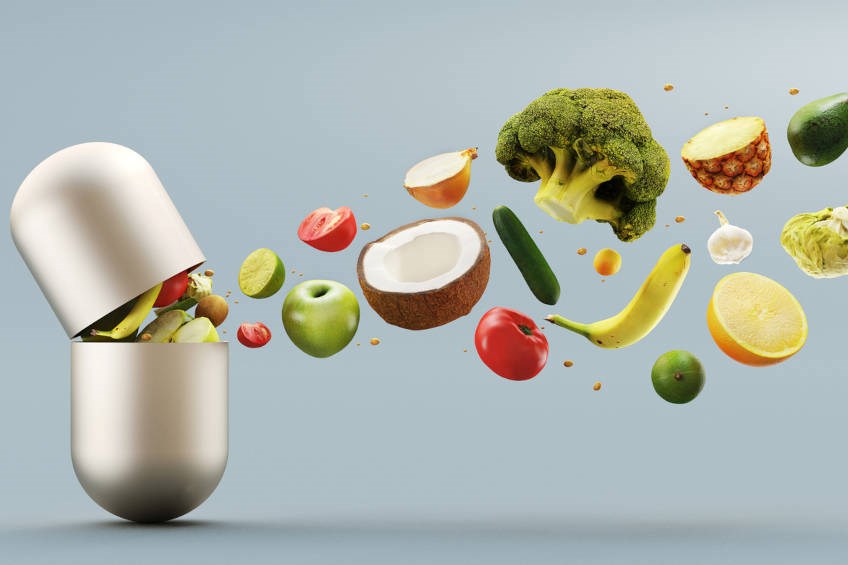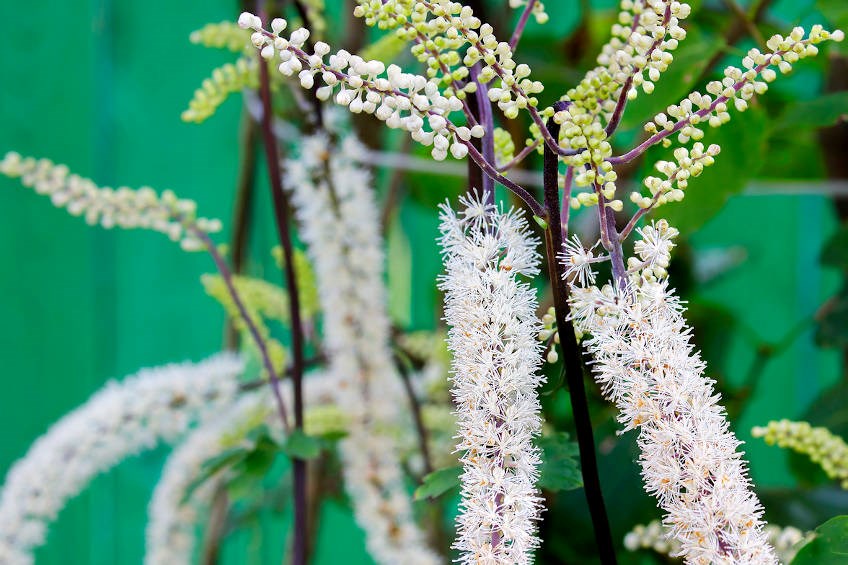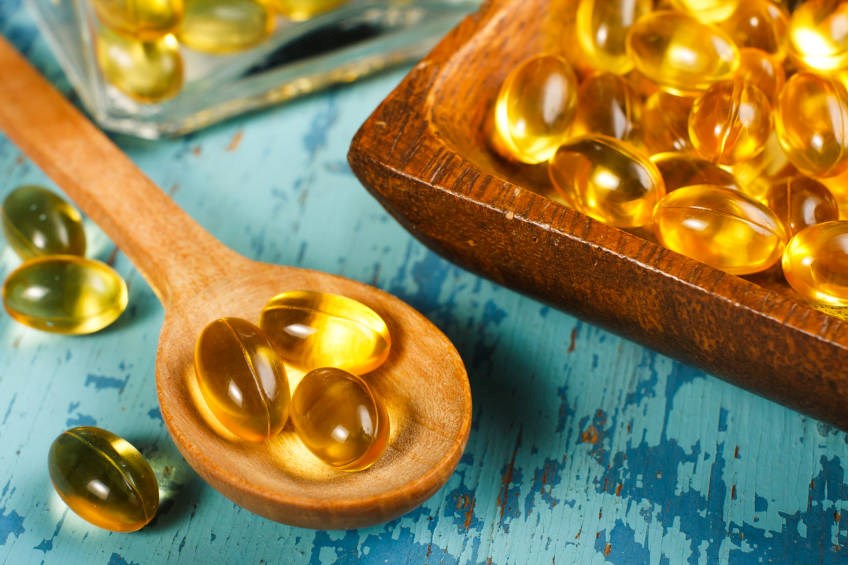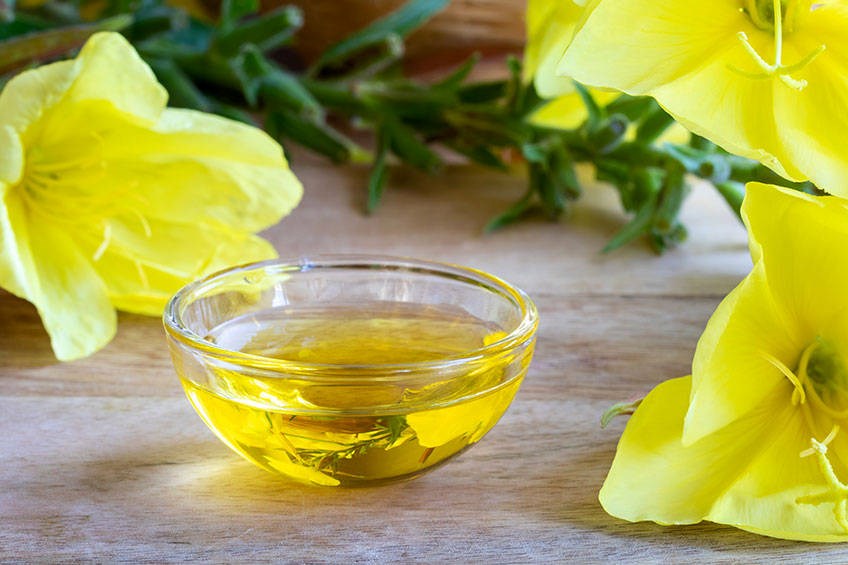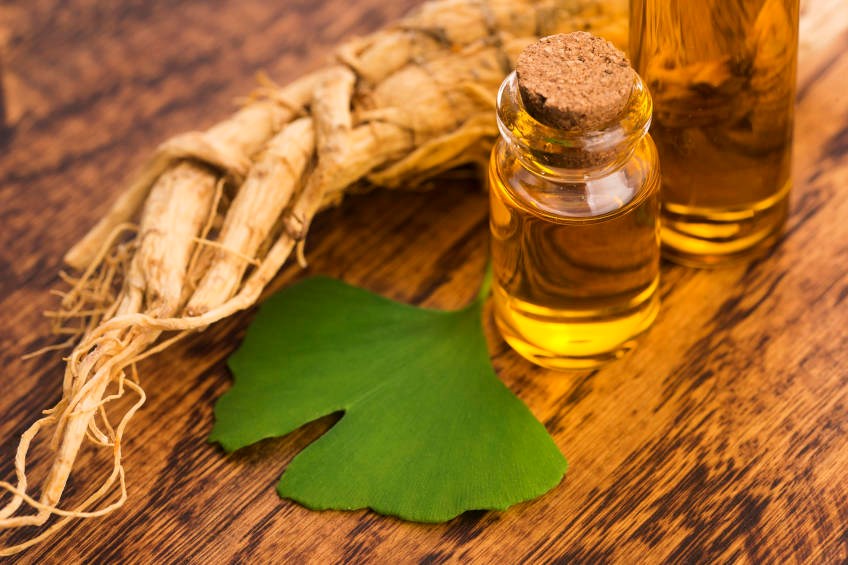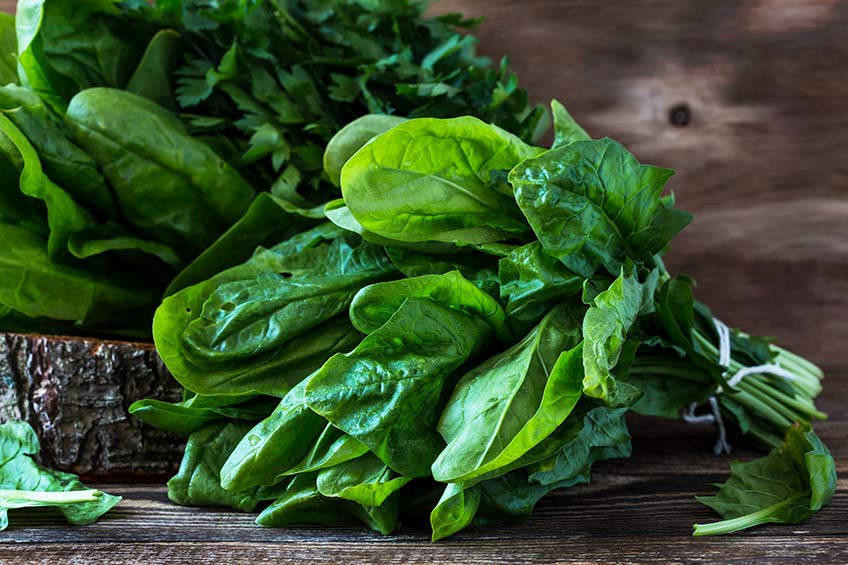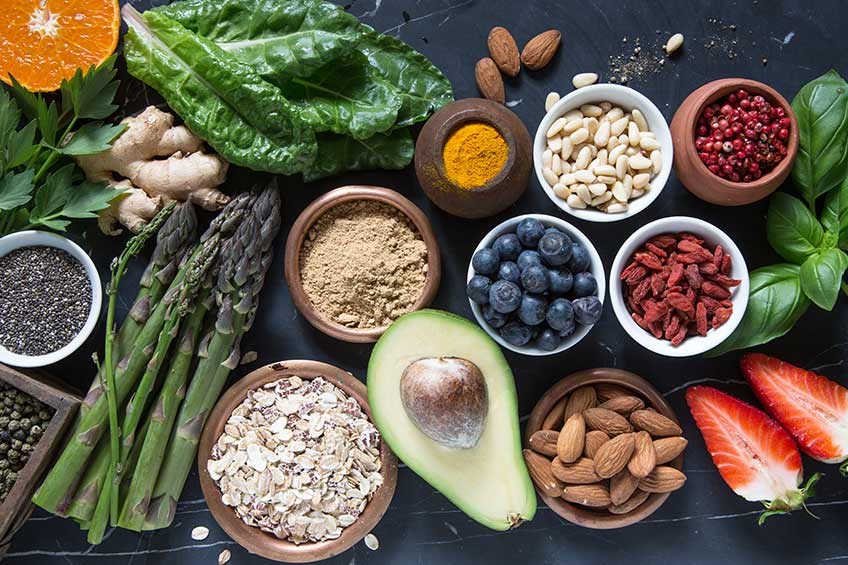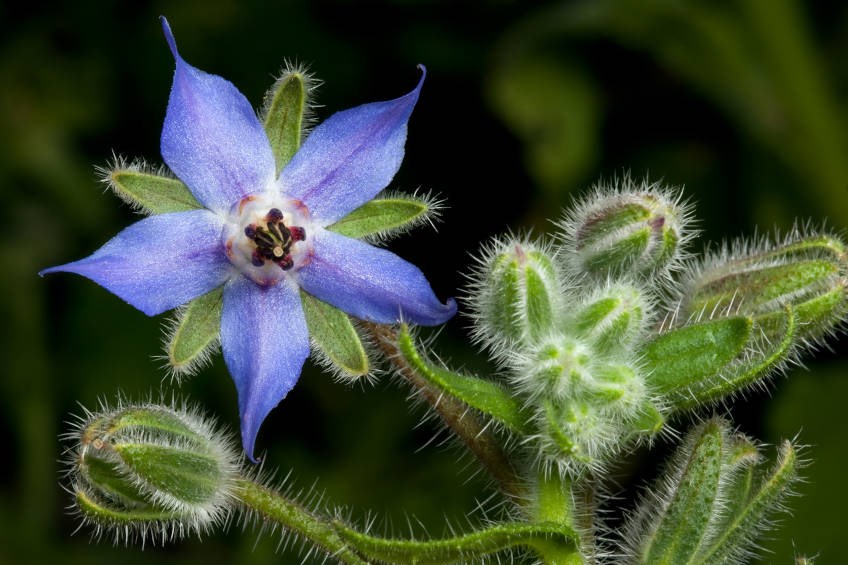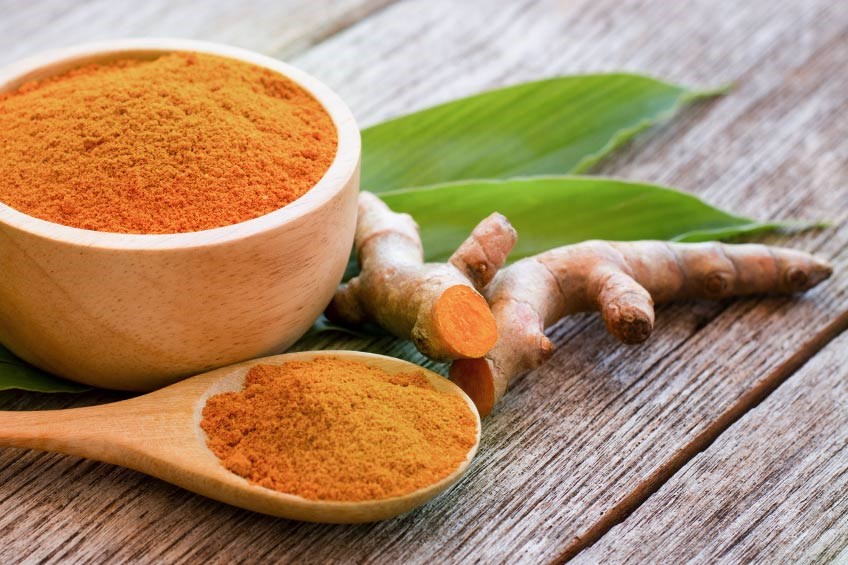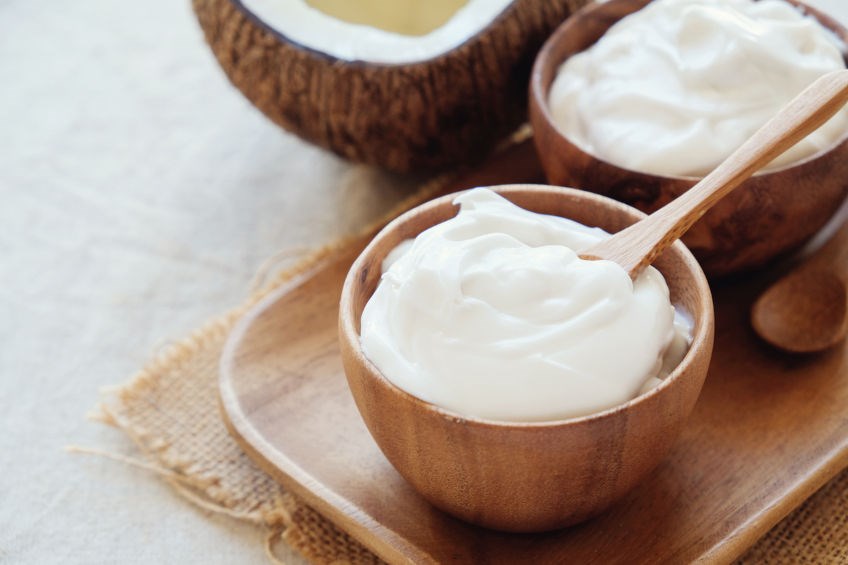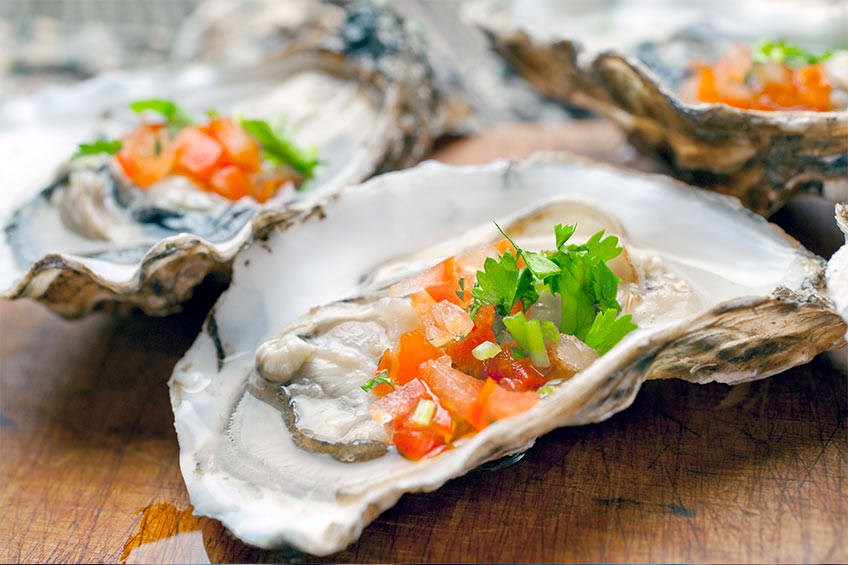From Acai Berry to Artichoke, Glucosamine to Vitamin D and everything in between: here's your guide to the most popular vitamins, minerals and supplements, showing you what they are and how they can support your health.
Why do I need to take supplements?
Diet should always come first, but if for whatever reason you don't eat the recommended amounts of fruit, vegetables, wholegrains, nuts, seeds or oily fish, you may be missing out on important nutrients needed for good health.
What's more, the average person's nutrient intake is far lower than the recommended levels. Due to genetic modification and changes in farming practices, many of the healthy foods we consume have lower nutritional value than they would have done in the past, and are lacking vital trace elements.
Having low vitamin and mineral levels can be a risk factor for chronic health conditions, and supplements can help make up for any shortfall.
From Acai Berry to Artichoke, Glucosamine to Vitamin D and everything in between: here's your guide to the most popular vitamins, minerals and supplements, showing you what they are and how they can support your health.
Why do I need to take supplements?
Diet should always come first, but if for whatever reason you don't eat the recommended amounts of fruit, vegetables, wholegrains, nuts, seeds or oily fish, you may be missing out on important nutrients needed for good health.
What's more, the average person's nutrient intake is far lower than the recommended levels. Due to genetic modification and changes in farming practices, many of the healthy foods we consume have lower nutritional value than they would have done in the past, and are lacking vital trace elements.
Having low vitamin and mineral levels can be a risk factor for chronic health conditions, and supplements can help make up for any shortfall.
Browse vitamins and minerals by letter
A B C D E F G H I K L M O P R S T U V Z
Acai Berry
What is it?
An acai berry is a dark purple berry. The acai berry is often referred to as a 'super berry.' In a freeze-dried format it contains good levels of antioxidants, which can help to reduce oxidation damage caused by free radicals.
What does it do?
Acai berries are a rich source of amino acids, fibre, and omega 3 and 6 essential fatty acids, iron and vitamins A, B1, B2, B3, C and E. Acai can be used for giving your immune system a boost and fighting off colds.
Recommended dosage
Freeze dried berry powder 500mg, equivalent to whole berry 4,000mg, daily.
Agnus Castus
What is it?
Agnus castus is derived from the fruit of a tree native to the Mediterranean and West Asia.
What does it do?
Agnus castus is a traditional herbal medicine used to help relieve symptoms associated with premenstrual syndrome, such as irritability, mood swings, breast tenderness, bloating and menstrual cramps. Based on traditional use only. Always read the leaflet.
Recommended dosage
4mg of dry extract equivalent to 28-52mg of agnus castus. Agnus castus is relatively slow-acting and may take up to six months to achieve its full effect.
Aloe Vera
What is it?
The succulent Aloe vera originates from the Middle East, and is one of the world's oldest medicinal herbs.
What does it do?
Gel made from the plant has soothing, anti-inflammatory properties. Used internally, it is a popular remedy for intestinal disorders such as irritable bowel syndrome, indigestion, constipation, diverticulosis, ulcerative colitis and Crohn's disease. It is also believed to have immune-stimulating properties.
Recommended dosage
50mg concentrated extract equivalent to 10,000mg gel.
Apple Cider Vinegar
What is it?
Apple cider vinegar is a type of vinegar made from fermenting the juice of apples. It has been used medicinally for more than 2,000 years.
What does it do?
Apple cider vinegar slows stomach emptying, which suppresses appetite and helps you feel full for longer. As a result, the absorption of fats and sugar may be slower, which can have a beneficial effect on cholesterol balance and glucose control. It also slows the breakdown of complex carbohydrates further down the gut, helping to reduce blood sugar swings that can trigger hunger and snacking.
Recommended dosage
500mg daily as a tablet or 10ml to 30ml of apple cider vinegar diluted in water.
Find out more about apple cider vinegar.
Artichoke
What is it?
The globe artichoke is a plant native to the Mediterranean. The leaves contain several substances, such as cynarin, that have beneficial health effects when consumed at the recommended levels.
What does it do?
Globe artichoke extracts help to increase bile secretion and improve digestion of dietary fats. It has a similar action to milk thistle in protecting liver cells from the ill effects of toxins. It also acts as an antioxidant and helps to lower cholesterol.
Recommended dosage
360mg standardised extract, equivalent to 9,000mg fresh leaves, providing 7.2mg Cynarin.
The lowdown on antioxidants
Antioxidants are substances that have the ability to help neutralise damaging oxidation reactions, which are triggered by chemicals known as free radicals. We explain why they're important for your health.
Find out more
Beta-Carotene
What is it?
A yellow/orange, carotenoid pigment found in various fruit and vegetables including oranges, carrots, tomatoes and peaches.
What does it do?
Beta-carotene acts as an antioxidant, and provides a source of Vitamin A. It forms an important part of our carotenoid intake and works with other antioxidants to produce beneficial effects against heart disease.
Recommended dosage
7mg daily as part of a mixed carotenoid intake. It should not be used by smokers.
Bilberry
What is it?
Bilberry is a dark purple berry related to the cranberry, blueberry and huckleberry. These delicious berries are obtained from a shrub that is predominantly native to Poland and Ireland. The fruit is a naturally rich source of potent plant compounds known as 'anthocyanidins.'
What does it do?
Bilberry is the leading herbal remedy for maintaining healthy vision and managing various eye disorders. Bilberry is believed to help maintain a healthy retina.
Recommended dosage
Bilberry extract 50mg, equivalent to whole bilberry 5,000mg
Find out more about bilberry.
Black Cohosh
What is it?
Black cohosh is a Canadian herb, distinguished by its tall, fluffy, white flowers.
What does it do?
It's a traditional herbal medicine used for the relief of symptoms of the menopause such as hot flushes, night sweats and temporary changes in mood like nervous irritability and restlessness, based on traditional use only. Always read the leaflet.
Recommended dosage
6.5mg of black cohosh dry extract.
Find out more about black cohosh.
Bromelain
What is it?
Bromelain is a naturally occurring enzyme extracted from the stem of the pineapple plant.
What does it do?
Bromelain's anti-inflammatory action makes it useful in the treatment of the pain and swelling associated with sprains and muscle injuries. It is also used to help heal wounds and burns.
Recommended dosage
500mg daily.
Find out more about bromelain.
Black cohosh: benefits and uses
Black cohosh is traditionally used to bring relief from symptoms of the menopause, such as hot flushes, night sweats, mood swings, irritability and restlessness.
Find out more
Calcium
What is it?
Calcium is the most abundant mineral in our body, with 99% found in our bones and teeth in the form of hydroxyapatite.
What does it do?
A good calcium intake is vital throughout life for the growth and development of strong, healthy bones and teeth. Calcium plays a role in muscle contraction, nerve contraction and blood clotting.
Recommended dosage
800mg daily.
Chromium
What is it?
Chromium is a trace mineral that comes in several chemical forms. It is usually supplied as either chromium picolinate or chromium polynicotinate.
What does it do?
Chromium helps to maintain stable blood glucose levels and may help with weight loss as well as maintaining or increasing muscle tissue. Chromium also aids in breaking down protein and fat.
Recommended dosage
200µg daily.
Chondroitin sulphate
What is it?
Chondroitin sulphate is made up of a chain of sugar proteins (glycosaminoglycans) to which sulphate groups are attached. It is a natural substance found in the body, which stimulates the formation of cartilage and joint connective tissues.
What does it do?
Chondroitin lends flexibility to ligaments and cartilage. It attracts water into the joints, which acts as a shock absorber as well as a nutrient transport system.
Recommended dosage
800-1,200mg daily.
Find out more about chondroitin.
Cinnamon
What is it?
Cinnamon is derived from the bark of a tree and has been used by herbalists for thousands of years. It contains compounds known as terpenoids, which are responsible for its health benefits.
What does it do?
Cinnamon may help to regulate normal blood glucose levels in people with diabetes.
Recommended dosage
200mg extract equivalent to 1,000mg cinnamon.
Cod Liver Oil
What is it?
Cod liver oil is a naturally occurring fish oil that has been used for generations. As with most fish oils, it has high levels of omega-3 fatty acids, but as it's derived from cod liver, it's also rich in vitamin A and vitamin D.
What does it do?
Cod liver oil is widely taken to help support the joints, heart, brain, eyes and immunity.
Recommended dosage
1-1.5g per day.
Find out more about cod liver oil.
Co-enzyme Q10
What is it?
CoQ10 is a vitamin-like substance that is available in two forms: ubiquinone or the more body-ready ubiquinol. It is a naturally occurring substance found in all cells of the body, and is particularly concentrated in muscle cells, especially those of the heart.
What does it do?
CoQ10 improves oxygen uptake and use during energy production in cells. CoQ10 also helps to protect against gum disease.
Recommended dosage
Ubiquinol 100mg; ubiquinone 30mg-200mg.
Find out more about CoQ10.
Collagen
What is it?
Collagen is a protein that is found in all body tissues. Around 90% of this collagen is in the type 1 form, which is a major structural component of skin, bones, tendons and other connective tissues such as ligaments.
What does it do?
As we age, our ability to produce collagen diminishes. Collagen tablets can help to supplement the levels of collagen within the body.
Recommended dosage
500mg daily.
Find out more about collagen.
Conjugated linoleic acid (CLA)
What is it?
CLA is a type of fatty acid that is found in high quantities in meat and dairy.
What does it do?
CLA helps to increase the breakdown of fat, and promotes the formation of muscle, which burns fat as fuel. It is used to aid weight loss in combination with a healthy balanced diet and moderate exercise. This is a popular supplement among athletes and slimmers.
Recommended dosage
One to two 1,000mg capsules a day. CLA should be taken for the recommended period of three months alongside appropriate exercise and adopting a well-balanced diet.
Cranberry
What is it?
Cranberries are red berries from a shrub native to North America. They are closely related to the blueberry, and have been used for centuries in both healing and cooking.
What does it do?
Cranberries contain a type of chemical (anti-adhesin), which prevents bacteria sticking to cells lining the urinary tract wall, so the bacteria are more easily flushed out.
Recommended dosage
500mg concentrated extract, equivalent to 25,000mg.
Find out more about cranberry.
Cod liver oil: benefits and uses
From joints to eyes, brain and heart, find out how this firm supplement favourite can support your health.
Find out more
Devil's Claw
What is it?
Devil's Claw is a South African desert plant, whose tubers contain unique compounds such as harpagoside. It is a traditional herbal medicine used for the relief of backache, rheumatic or muscular pain, and general aches and pains in the muscles and joints, based on traditional use only. Always read the leaflet.
What does it do?
Devil's Claw has a natural, anti-inflammatory, pain-killing action, and is taken to treat back or joint pain. Traditionally it was also used as a tonic to aid digestive problems and reduce fevers.
Recommended dosage
450mg of extract, equivalent to 1,575mg-2,250mg of fresh devil's claw root.
Find out more about Devil's claw.
Echinacea
What is it?
Echinacea is a traditional herbal medicine derived from the flowers and leaves of the purple coneflower (echinacea purpurea).
What does it do?
Echinacea is a traditional herbal medicine used for the relief of symptoms of the common cold and influenza-type infections, based on traditional use only. Always read the leaflet.
Recommended dosage
176mg of dried pressed juice equivalent to 3,520mg-4,925mg of fresh flowering echinacea purpurea.
Evening Primrose Oil
What is it?
Evening primrose oil is an oil derived from the seed of the evening primrose plant. It is a rich source of gammalinolenic acid.
What does it do?
It is widely taken to help maintain soft, supple, non-itchy skin and to help improve hormone imbalances associated with breast pain and premenstrual syndrome.
Recommended dosage
500-1000mg daily.
Find out more about evening primrose oil.
Evening primrose oil: benefits and uses
Read more about evening primrose oil: a well-known remedy typically bought for hormone balancing and dry and itchy skin conditions.
Find out more
Feverfew
What is it?
Feverfew is a member of the botanical family that includes daisies and sunflowers. This herb is often mistaken for chamomile. The leaves are used medicinally.
What does it do?
This traditional herbal medicine is used for the prevention of migraine headaches, based on traditional use only. Always read the leaflet.
Recommended dosage
100mg of dry Feverfew herb.
Flaxseed oil
What is it?
The flax plant is known for its medicinal properties. This plant grows up to a metre in height, and bears blue flowers. Both the oil and the seeds are used for therapeutic purposes.
What does it do?
Flaxseed oil provides a vegetarian version of omega 3. Flaxseed oil is a rich source of alpha-linolenic acid (ALA), which is converted in the body to the long-chain omega-3 fatty acids EPA and DHA. This vegetarian source is an alternative to preformed EPA and DHA obtained from oily fish and fish oils, or vegan omega 3 made from algae.
Recommended dosage
1,000mg.
Folic Acid
What is it?
Folic acid is a water-soluble B vitamin. It is the synthetic form of the naturally occurring folate, and is included in supplements as it is more readily absorbed and used more efficiently in the body.
What does it do?
Folic acid is involved in the synthesis and metabolism of proteins, sugar and nucleic acids during cell division. It is especially needed by cells that are dividing rapidly. Folic acid is essential during the first few weeks of a baby's development in the womb.
Recommended dosage
200µg daily, or 400µg for women planning a baby.
Garlic
What is it?
Garlic is a popular kitchen herb. The main beneficial substance derived from garlic is allicin, which gives a crushed clove its characteristic smell.
What does it do?
Garlic has antioxidant, antiseptic, antibacterial and antiviral properties. Garlic's most important use is to help maintain a healthy heart and circulation.
Recommended dosage
Concentrated extracts equivalent to 800mg to 1,200mg whole garlic.
Black garlic dose: 200mg standardised extract, equivalent to 2,000mg whole garlic.
Find out more about white and black garlic.
Ginger extract
What is it?
Ginger is one of the oldest medicinal spices known. It contains unique substances such as gingerol and zingerone.
What does it do?
Ginger is used as a warming analgesic, with anti-inflammatory and anti-sickness properties. It is taken for various reasons, including motion and morning sickness, indigestion, colds and fevers.
Recommended dosage
100mg standardised ginger extract.
Ginkgo biloba
What is it?
The ginkgo biloba tree has remained virtually unchanged for the last 200 million years. Its fan-shaped leaves contain a variety of unique substances known as ginkgolides and bilobalides.
What does it do?
Ginkgo extracts relax blood vessels and have a thinning action on blood to improve circulation to the brain, hands, feet and genitals.
Recommended dosage
Concentrated extracts: 120mg daily.
Find out more about ginkgo biloba.
Ginseng
What is it?
Ginseng is one of the oldest known herbal medicines. Panax ginseng contains several unique substances, known as ginsenosides, of which 29 have now been identified.
What does it do?
Ginseng is classed as an adaptogen, which means it helps the body adapt to physical or emotional stress and fatigue. It is both stimulating and restorative, improving physical and mental energy.
Recommended dosage
Optimum dose usually around 600mg daily.
Find out more about ginseng.
Glucosamine
What is it?
Glucosamine is a substance that is naturally made in the body from a sugar (glucose) and an amino acid (glutamine). Large quantities are needed when damaged joints are healing. Glucosamine supplements are available as tablets, liquids and topical gels.
Glucosamine is often combined with chondroitin for additional benefits. Taken together, both supplements support joint health and could help reduce the pain and inflammation of osteoarthritis.
What does it do?
Glucosamine is essential for the production of new cartilage and synthesis of the joints' 'oil' (synovial fluid), helping to make it thicker and more cushioning. Glucosamine is mostly used by elderly people with worn joints and athletes/sports people, particularly those trying to ward off damage to knee cartilage.
Recommended dosage
1,000-1,325mg Glucosamine HCl (providing 830-1,100mg pure glucosamine) per day.
Green tea
What is it?
Green tea is made from the leaves of the camelia bush. The lack of fermentation gives green tea its unique flavour and helps to preserve almost all the naturally present polyphenols. Can be enjoyed as a beverage or as a supplement.
What does it do?
Green tea possesses compounds that boost energy and may provide protection against premature ageing and possibly heart disease.
Recommended dosage
Green tea extract 340mg.
Green-lipped mussel
What is it?
Green-lipped mussels grow in the unique marine conditions found around parts of New Zealand.
What does it do?
Raw extracts contain substances that help to reduce inflammation in joints. It is mainly used to help reduce symptoms of arthritis, including rheumatoid arthritis.
Recommended dosage
500mg twice daily.
Ginkgo and Ginseng: benefits and uses
Together, ginkgo and ginseng can support memory, concentration, decision-making and thinking and understanding. Ginseng is also reputed to reduce tiredness and fatigue and to help people cope with stress.
Find out more
5-HTP
What is it?
5-HTP is short for 5-hydroxytryptophan. It is derived from an amino acid, tryptophan, which is found in high-protein foods.
What does it do?
5-HTP works as a treatment for mood disorders such as depression, anxiety and panic attacks, as it can help to replenish reduced levels of serotonin in the brain.
Recommended dosage
100mg one to three times a day. Use for 3 months followed by a break.
Find out more about 5-HTP.
Hyaluronic acid
What is it?
A component of synovial fluid, which is a natural lubricant in joints. It is also known for its hydrating properties.
What does it do?
Hyaluronic acid is used as a natural lubricant in joints. It helps to reduce friction between cartilage and bones, and could help alleviate the symptoms of osteoarthritis. It can also improve dryness and redness of the skin, by helping to retain moisture.
Recommended dosage
A typical dose is 17mg per day.
Iron
What is it?
Iron is an essential metallic mineral element.
What does it do?
Iron is needed for the production of the red blood pigment, haemoglobin, and the red muscle pigment, myoglobin. Many enzyme systems rely on iron, including those involved in the production of energy from carbohydrate, fat and protein, as well as immunity.
Recommended dosage
14mg daily.
Kelp extract
What is it?
Kelp supplements are obtained from long-leaved seaweeds such as laminaria and fucus.
What does it do?
Kelp is a nutritional food source containing 13 vitamins, 20 essential amino acids and 60 minerals. Its main use is as a source of iodine to improve production of thyroid hormones. Kelp is also taken to improve the quality of hair, skin and nails.
Recommended dosage
180-360mg daily.
Krill oil
What is it?
Krill are small shrimp crustaceans that are found in the Antarctic. Krill oil is fast growing in popularity as an alternative form of fish oil supplementation.
What does it do?
The presence of astaxanthin truly sets krill apart from traditional fish oils. Providing krill's vibrant red colour, astaxanthin is 300 times more powerful as an antioxidant than the vitamins A and E, helping to protect the body against oxidative stress.
Recommended dosage
500mg-1,200mg daily.
L-Arginine
What is it?
L-arginine is a commonly occurring amino acid, which can be found in the diet in red meat, fish and dairy products. It is also found naturally in the human body, where it plays a number of vital roles, but can be in short supply.
What does it do?
L-arginine is involved in the synthesis of nitric oxide. Nitric oxide causes blood vessels to open wider to improve blood flow. This has led the supplement to grow in popularity to enhance male sexual function.
Recommended dosage
750mg to 1,500mg.
Lecithin
What is it?
Lecithin is a type of fat known as a phospholipid, and its chemical name is phosphatidyl choline. Lecithin is now known to be an essential dietary component, which cannot be made in the body in quantities high enough to meet our needs.
What does it do?
Lecithin provides building blocks to make healthy cell membranes, and for healthy nerve and brain function.
Recommended dosage
A good daily intake is 2,400mg to 4,800mg.
Lutein
What is it?
Lutein is a carotenoid that acts as an antioxidant. As it is not made in the body, it has to come from the diet through sources such as yellow, orange and dark green fruit and veg including sweetcorn, pumpkin and broccoli. It's also present in egg yolk.
What does it do?
Lutein is sometimes referred to as nature's sunglasses. A low intake is associated with an increased risk of macular degeneration and cataracts.
Recommended dosage
10mg daily.
Find out more about lutein.
Lycopene
What is it?
Lycopene is a carotenoid that is best known as the red pigment in tomatoes. Lycopene makes up at least 50% of all carotenoids found in the human body.
What does it do?
Lycopene is a powerful antioxidant. It is beneficial for protecting against coronary heart disease, and is also important for a healthy prostate gland.
Recommended dosage
15mg daily.
Find out more about lycopene.
Lutein: benefits and uses
Lutein can help protect against age-related macular degeneration (AMD) and cataracts.
Find out more
Magnesium
What is it?
Magnesium is an essential mineral. Seventy per cent of the body's stores are found in the bones and teeth.
What does it do?
Needed by over 300 enzymes, magnesium is important for maintaining the electrical integrity of body cells. It is especially important for controlling calcium entry into heart cells to trigger a regular heartbeat, and helps to lower a high blood pressure.
Recommended dosage
375mg daily.
Find out more about magnesium.
Milk Thistle
What is it?
Milk thistle is a herb whose seeds contain a unique and powerful mixture of antioxidants known as silymarin, the most active ingredient of which is silibinin.
What does it do?
Milk thistle is a traditional herbal medicine used to relieve the symptoms associated with occasional over-indulgence, such as indigestion and upset stomach, based on traditional use only. Always read the leaflet.
Recommended dosage
193mg-261mg standardised extract corresponding to 108mg silymarin, once or twice a day with liquid.
Find out more about milk thistle.
MSM
What is it?
MSM is a sulphur compound that is made naturally in the body from the amino acids methionine, cysteine and taurine.
What does it do?
MSM is important for healthy joints, cartilage, tendons and ligaments. It is used to help a number of conditions including allergies, acid indigestion and degenerative bone diseases.
Recommended dosage
2,000mg daily for two weeks, then 1,000mg three times a day.
Find out more about MSM.
Magnesium: benefits and uses
Magnesium is involved in just about every metabolic reaction, from energy production to the synthesis of hormones, proteins and genetic material. Find out why magnesium is important for your health, and where to get it.
Find out more
Omega 3
What is it?
Omega-3 fish oils are extracted from the flesh of oily fish. They are rich in long-chain omega-3 fatty acids such as docosahexaenoic acid (DHA) and eicosapentaenoic acid (EPA).
What does it do?
Omega-3 fish oils are widely taken to help maintain healthy joints, eyes, heart and brain. They have an anti-inflammatory action, and are helpful for reducing symptoms of inflammatory conditions such as arthritis, asthma, rheumatoid arthritis and psoriasis.
Recommended dosage
1g daily.
Find out more about omega 3.
Omega 7
What is it?
Omega 7 is an unsaturated fatty acid found in certain oils such as olive oil and sea buckthorn oil.
What does it do?
Omega 7 can help to reduce the effects of premature ageing, and is also known for its hydrating properties. It has also been linked to cardiovascular health through maintaining healthy cholesterol and blood sugar levels.
Recommended dosage
1,000mg daily.
Find out more about sea buckthorn, a good source of omega 7.
Know your omega 3
Omega-3 fatty acids have a range of benefits, from helping to protect the heart and skin, to brain function. Find out how to get omega 3 from your diet and what supplements are available.
Find out more
Pelargonium
What is it?
Pelargonium is a traditional herbal medicine. Pelargonium contains an extract of the root of the herb pelargonium sidoides.
What does it do?
Pelargonium is used to relieve the symptoms of upper respiratory tract infections including the common cold, such as sore throat, cough, and blocked or runny nose. Based on traditional use only. Always read the leaflet.
Recommended dosage
20mg tablet three times daily with water.
Find out more about pelargonium.
Peppermint oil
What is it?
Peppermint is a popular herb, cultivated worldwide for culinary and medicinal use. Much of the recent research into the benefits of peppermint have focused on its actions within the digestive system.
What does it do?
Peppermint contains menthol, which has a calming effect and helps to relax the muscles. It also has analgesic, antibacterial and antispasmodic properties.
Recommended dosage
100mg three times a day, after each meal or as required.
Plant Sterols
What are they?
Plant sterols (also known as phytosterols) are similar in structure to the body's own cholesterol, and act in a similar way in plant cell membranes as cholesterol does in our own human cells.
What do they do?
Plant sterols are able to block the absorption of dietary cholesterol in the small intestine, without being absorbed significantly themselves. The European Commission has confirmed that, together with a healthy balanced diet, plant sterols can help to lower a raised blood cholesterol level at intakes of 1.5g to 2.4g per day.
Recommended dosage
800mg to 2.4g daily.
Find out more about plant sterols.
Probiotics
What are they?
Probiotics are supplements containing natural 'friendly' lactic acid bacteria, such as the Lactobacilli and Bifidobacteria found naturally in the large bowel, that can encourage a healthy digestive balance.
What do they do?
Probiotic bacteria produce lactic acid, which helps to create a healthy intestinal environment and discourage infection from potentially harmful, disease-causing organisms. They improve intestinal health, promote good digestion and boost immunity.
Recommended dosage
5 billion to 20 billion colony forming units daily.
Find out more about probiotics.
Pycnogenol
What is it?
Pycnogenol is an extract obtained from the bark of the French maritime pine. It contains a rich blend of natural fruit acids and antioxidants.
What does it do?
Pine bark extracts have a beneficial effect on the circulation, reducing hardening and furring up of the arteries, thinning the blood, reducing clumping of clotting fragments and helping to reduce the risk of coronary heart disease and stroke.
Recommended dosage
60mg daily after food.
Find out more about Pycnogenol.
Focus on: plant sterols
Numerous studies show that eating foods containing plant sterols or taking supplements can help to lower cholesterol levels, and that supplements are particularly useful for statin users.
Find out more
Red Vine
What is it?
Red vine leaf extracts come from the leaves of the common grapevine. The leaves are harvested when they have the highest content of nutrients, including the main active components – polyphenols.
What does it do?
Red vine leaf helps to maintain healthy leg veins, helping to reduce swelling and aching. The health of leg veins is vital for wellbeing and comfort, and for their important role in working against gravity to circulate blood back to the heart.
Recommended dosage
360mg extract equivalent to 5,400mg red vine leaf, and providing 144mg polyphenols, once daily.
Rose hip
What is it?
Rose hips are the bright red fruits found on wild rose bushes. Rose hips are a rich source of beneficial, anti-inflammatory fatty and volatile oils, tannins, polyphenols and flavonoids.
What does it do?
Traditionally rose hip was used for treating colds and asthma, but they have also recently been discovered to have painkilling properties and are also used as an effective treatment for painful joints.
Recommended dosage
250mg extract equivalent to 5,000mg whole rose hips. Take daily with food.
Find out more about rose hip.
Royal Jelly
What is it?
Royal jelly is a nutritious nectar produced by worker honey bees to feed the queen bee.
What does it do?
Royal Jelly is one of the richest natural sources of vitamin B5, and it also contains other B vitamins plus vitamins A, C, D and E. Royal jelly is traditionally used to boost energy levels, mental alertness and to combat stress, fatigue and insomnia.
Recommended dosage
200mg extract equivalent to 600mg fresh royal jelly.
Sage Extract
What is it?
Native to the Mediterranean, sage is an evergreen member of the mint family, and can be found growing in many gardens in Britain. Known for its common use as a kitchen herb, sage has a long history of use as a herbal supplement.
What does it do?
Sage is a source of phytoestrogens. These plant forms of oestrogen hormone are commonly taken by women around the time of the menopause to help reduce symptoms such as hot flushes and night sweats.
Recommended dosage
400mg extract equivalent to 2,000mg whole leaves, once daily with food.
Find out more about sage.
Saw Palmetto
What is it?
The saw palmetto is a small palm tree whose fruit contains hormone-like substances known as sterols.
What does it do?
Saw palmetto is a traditional herbal medicinal product used to relieve urinary discomfort in men with an enlarged prostate (also known as Benign Prostatic Hypertrophy), based on traditional use only. Always read the leaflet.
Recommended dosage
160mg extract twice daily.
Find out more about saw palmetto.
Selenium
What is it?
Selenium is an essential trace element.
What does it do?
Selenium is essential for cell growth and immune function. Selenium is also important for immunity, stimulating the production of natural killer cells, which fight viral and bacterial infections.
Recommended dosage
200µg daily.
Find out more about selenium.
Soy Isoflavones
What are they?
Isoflavones are phytoestrogens (plant oestrogen-like hormones), found in members of the pea and bean family such as soy beans and chickpeas.
What do they do?
Isoflavones help to damp down high oestrogen states by competing for the stronger natural oestrogens at oestrogen receptors, as well as providing a useful oestrogen boost at the menopause. They also have a beneficial action on bone, boosting formation of new bone and reducing absorption of old bone.
Recommended dosage
100mg extracts providing 40mg, once or twice daily with liquid.
St John's Wort
What is it?
St John's wort is a herb whose petals and leaves contain a number of unique substances such as hypericin, pseudohypericin and hyperforin.
What does it do?
St John's wort is a traditional herbal medicine used to relieve the symptoms of slightly low mood and anxiety, based on traditional use only. Always read the leaflet.
Recommended dosage
370mg extract equivalent to 1,850-2,590mg once daily with liquid.
Find out more about St. John's wort.
Starflower Oil
What is it?
Starflower oil is extracted from borago officinalis, commonly known as the Starflower, which is native to Great Britain, Europe and North Africa. It has blue, star-shaped flowers, and the seed is used to produce starflower oil.
What does it do?
Starflower oil has a high content of gammalinolenic acid (GLA). GLA is processed in the body to form hormone-like substances known as prostaglandins. These help to maintain a healthy hormone balance, and have a beneficial action on inflammation, bloody clotting and immunity.
Recommended dosage
1,000mg daily, providing 205mg GLA.
Find out more about starflower oil.
Starflower oil: benefits and uses
Starflower oil is a popular herbal remedy, and is particularly useful as a source of GLA, which helps to reduce inflammation in the body. A starflower oil supplement may be especially beneficial for women's health conditions such as PMS, and to help improve the quality of skin.
Find out more
Turmeric
What is it?
Turmeric is a perennial plant found throughout Asia, whose root has been used for centuries as both a spice and as a traditional Ayurvedic medicine.
What does it do?
Turmeric consists of 95% curcumin, an antioxidant that helps to protect against inflammation and cell damage caused by unstable molecules called free radicals. It is used to help a number of digestive problems such as irritable bowel syndrome.
Recommended dosage
500mg extract equivalent to 10,000mg root powder (two tablets daily) with food.
Find out more about the benefits of turmeric for joint health.
Turmeric for immunity
Turmeric has long been used to support immunity. Karen Evennett examines the evidence.
Find out more
Valerian
What is it?
Valerian is a calming herb whose roots contain a number of unique substances such as valeric acid and valepotriates, which have a sedative action.
What does it do?
Valerian is a traditional herbal medicine used to aid sleep and for the temporary relief of sleep disturbances, based on traditional use only. Always read the leaflet.
Recommended dosage
300mg of extract equivalent to 1,500mg-1,800mg valerian root (two tablets half an hour before bedtime with liquid.)
Vitamin B3 (niacin)
What is it?
Vitamin B3 is a water-soluble vitamin commonly found in wheat, red meat and eggs. Small amounts of B3 can also be made in the body.
What does it do?
Vitamin B3 is important for releasing energy from muscle sugar stores and for processing fatty acids. It can help to reduce tiredness and fatigue, as well as maintain healthy skin.
Recommended dosage
18mg daily (people who are very active may need more niacin than those who aren't.)
Vitamin B6 (Pyridoxine)
What is it?
Natural vitamin B6 is a group of water-soluble substances that are converted to the active form, pyridoxine, in the body.
What does it do?
Vitamin B6 is needed by immune cells, which produce antibodies and fight infection. It is also needed for the synthesis of some brain chemicals.
Recommended dosage
1.4mg daily. Higher doses of 10mg to 50mg are commonly used short-term to help conditions such as premenstrual syndrome.
Vitamin B12 (Cyanocobalamin)
What is it?
Vitamin B12 is a water-soluble vitamin. It can be stored in the liver, and we usually have enough to last several years.
What does it do?
B12 is essential when genetic material (DNA) is synthesised during cell division. When B12 is in short supply, dividing cells become unusually large. When this affects red blood cells, the result is a form of anaemia known as pernicious anaemia.
Recommended dosage
2.5µg daily. Higher doses are commonly used.
Find out more about the B vitamins.
Vitamin C (Ascorbic acid)
What is it?
Vitamin C is a water-soluble vitamin that cannot be stored in the body in appreciable amounts.
What does it do?
Vitamin C is an important dietary antioxidant. It acts as an essential co-factor for at least 300 metabolic reactions, which are promoted when large quantities of vitamin C are available. It is a popular supplement to help boost immunity against viral infections such as the common cold.
Recommended dosage
80mg daily. Doses of 500mg to 1,000mg are widely used.
Find out more about vitamin C.
Vitamin D (cholecalciferol)
What is it?
Vitamin D is a fat-soluble vitamin that is converted in the body to form a hormone (calcitriol).
What does it do?
Vitamin D is essential for the absorption of dietary calcium and phosphate in the small intestine. It therefore plays an important role in maintaining healthy bones and teeth. It also has roles in maintaining a healthy heart and circulation, brain and immune function.
Recommended dosage
5µg daily, or 10µg in autumn and winter. 25µg is widely taken to reduce the risk of deficiency, and 50µg for the over-50s. Select a product that provides Vitamin D3 rather than Vitamin D2, as D3 is more effective at maintaining vitamin D status in the body.
Find out more about vitamin D.
Vitamin E (d-alpha-tocopherol)
What is it?
Vitamin E is a group of 8 fat-soluble vitamins. The most active form is natural-source d-alpha-tocopherol.
What does it do?
Vitamin E acts mainly as an antioxidant, protecting body fats from oxidative damage and rancidity. It has a strengthening effect on muscle fibres, boosts the immune system, and improves skin suppleness and healing.
Recommended dosage
18iu (12mg) daily. Higher doses of 200iu (134mg) to 400iu (267mg) are also commonly taken.
Vitamin K
What is it?
Vitamin K activity is found in a group of four fat-soluble substances: phylloquinone (K1), menaquinones (K2), menadione (K3) and menadiol (K4).
What does it do?
Vitamin K is essential for making important blood proteins involved in blood clotting. Vitamin K is also needed for the synthesis of osteocalcin – a calcium-binding protein found in bone.
Recommended dosage
75µg daily.
Vitamin K2: benefits and uses
This essential nutrient plays a vital role in the protection of bone and heart health.
Find out more
Zinc
What is it?
Zinc is an essential trace element.
What does it do?
Zinc is essential for the proper function of over a hundred different enzymes. It helps to regulate gene activation and the synthesis of specific proteins in response to hormone triggers.
Recommended dosage
10mg daily. Doses up to 15mg can be taken.
Find out more about zinc.
Zinc: benefits and uses
Zinc is essential for fertility and immunity, and is needed for over 200 body enzymes to work properly.
Find out more







